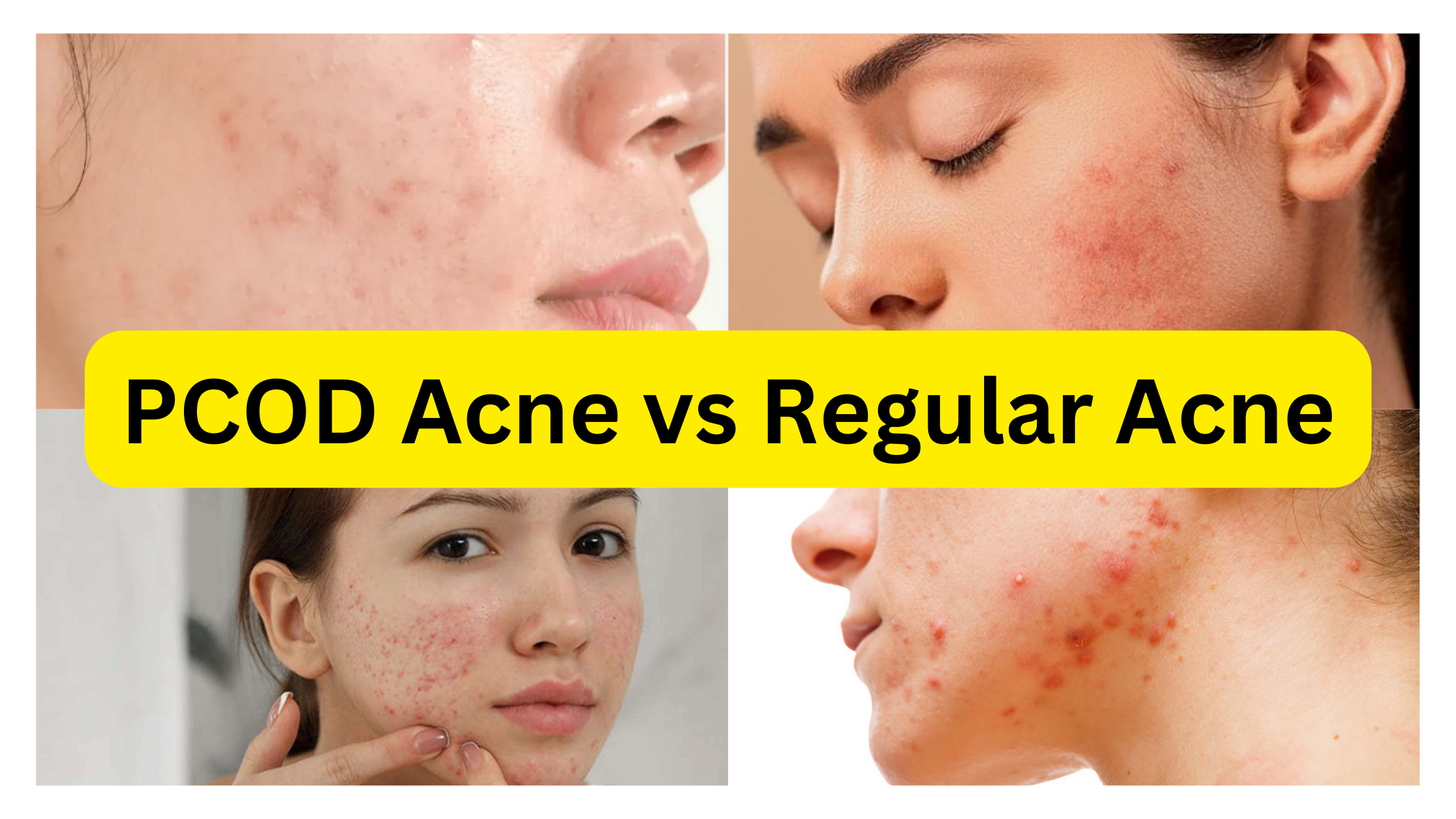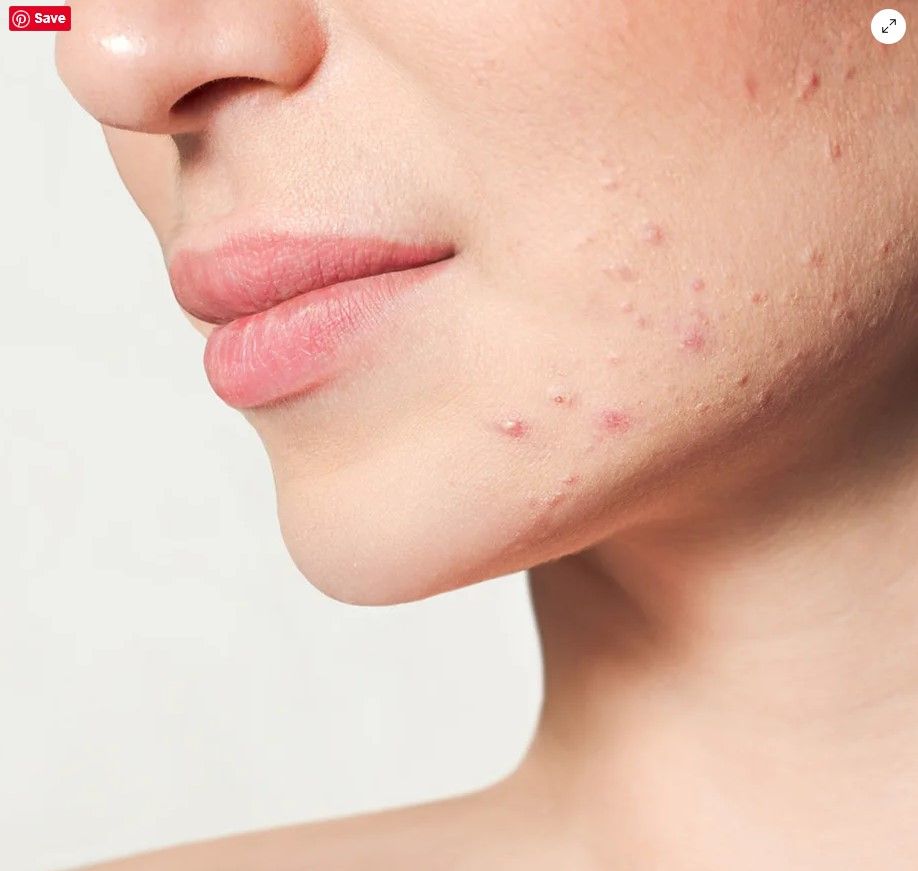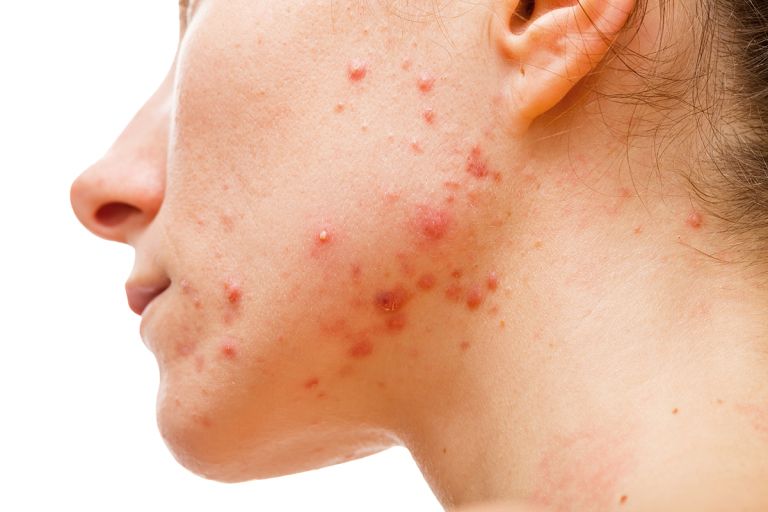PCOS/PCOD acne vs Regular acne. Differences and 5 Easy treatments
PCOS acne is caused by hormonal imbalances, while regular acne is caused by a combination of factors - including genetics, bacteria, and inflammation. Read this blog to know 5 tips to manage Acne.

Polycystic Ovary Syndrome (PCOS) or PCOD in the milder form is a hormonal disorder that affects women and can cause a range of symptoms, including acne. However, not all acne is the same, and it's essential to understand the differences between PCOS acne and regular acne. In this blog, we try to understand the differences between the two types of acne and provide five easy treatments for managing PCOS acne.

Difference between PCOS Acne and Regular Acne: Acne is a common skin condition that affects millions of people worldwide. However, PCOS acne is different from regular acne in a few ways.
PCOS acne is caused by hormonal imbalances, while regular acne is caused by a combination of factors - including genetics, bacteria, and inflammation.
Secondly, PCOS acne tends to occur along the jawline, chin, and upper neck, while regular acne can occur on any part of the face or body.

Another difference between the two types of acne is the severity of the breakouts. PCOS acne tends to be more severe and persistent, with large, painful cysts that can take longer to heal. In contrast, regular acne can range from mild to severe, and the severity can fluctuate over time.

Five Easy Treatments for PCOS Acne:
- Keep Your Skin Clean: One of the easiest ways to manage PCOS acne is to keep your skin clean. Use a gentle cleanser twice a day to remove excess oil and dirt from your skin. Avoid using harsh soaps or scrubs, as they can irritate the skin and worsen acne.
- Use Topical Treatments: There are many over-the-counter topical treatments available for managing acne, including benzoyl peroxide, salicylic acid, and retinoids. These treatments can help to unclog pores, reduce inflammation, and prevent new breakouts.
- Manage Your Hormones: Since PCOS acne is caused by hormonal imbalances, managing your hormones can be an effective way to manage acne. Speak to your doctor about hormonal birth control or other medications that can regulate your hormones.
- Adjust Your Diet: Certain foods can trigger acne breakouts, so it's essential to adjust your diet accordingly. Avoid sugary, processed foods and focus on eating a balanced diet with plenty of fruits, vegetables, and lean proteins.
- Reduce Stress: Stress can also contribute to acne breakouts, so it's essential to find ways to manage your stress levels. Try practicing relaxation techniques such as yoga, meditation, or deep breathing exercises.
Conclusion: PCOS acne and regular acne may appear similar, but they have different causes and treatments. If you're experiencing persistent acne along the jawline, chin, and upper neck, it may be a sign of PCOS. However, by following the five easy treatments outlined in this blog post, you can effectively manage your PCOS acne and enjoy clear, healthy skin. Always speak to your doctor if you're experiencing persistent acne or any other symptoms of PCOS.
